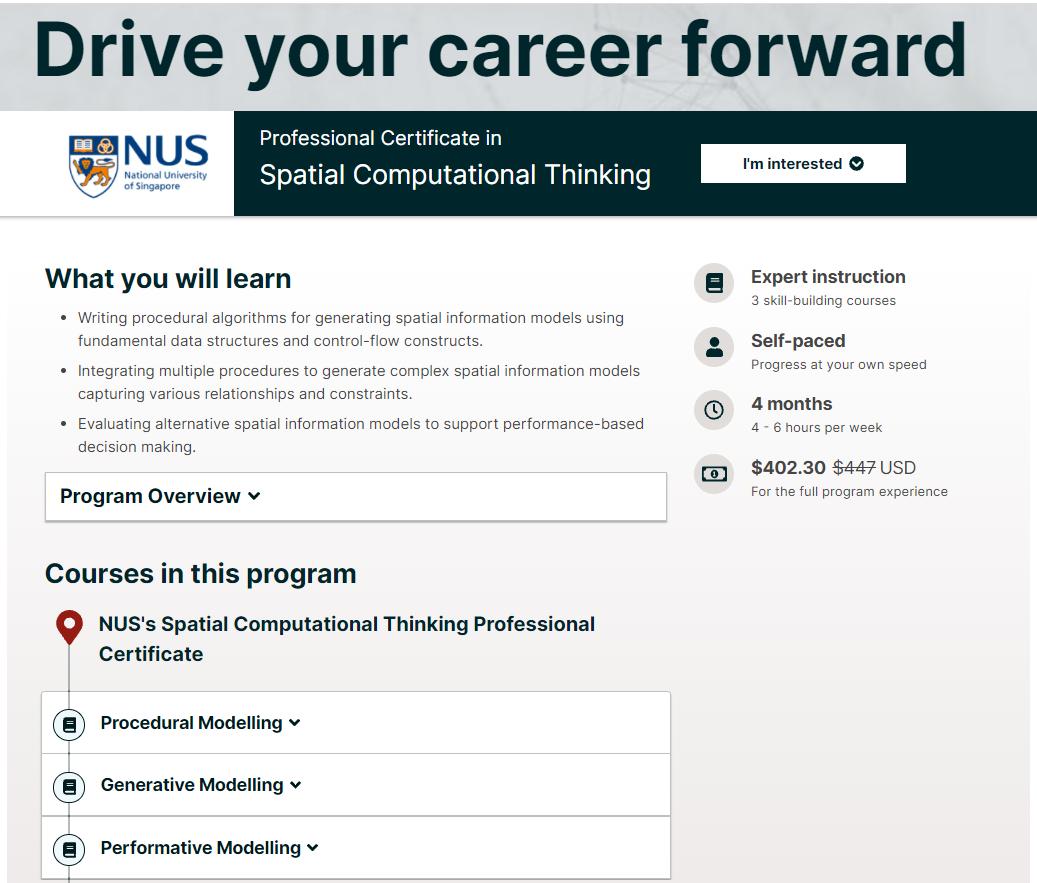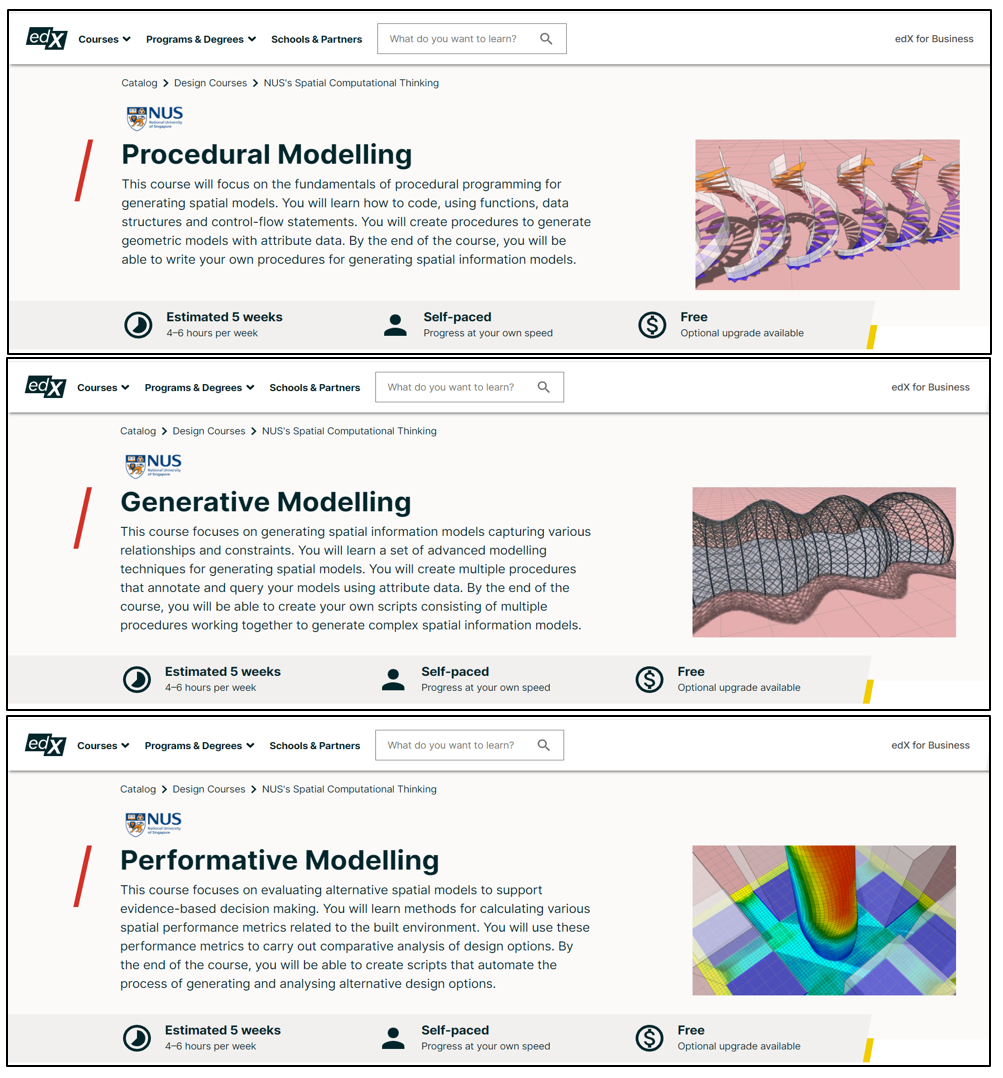Design Automation Lab
A research lab developing methods and tools for supporting design decision making.
Spatial Computational Thinking
- Title: Spatial Computational Thinking: Edx Massive Open Online Courses
- Project Period: Apr 2019 to Sep 2020
- Funding Source: NUS LIFT
- Principal Investigator: Patrick Janssen (PI)
- Budget: SGD $67,000


Research Overview
Spatial Computational Thinking is increasingly being recognised as a fundamental method for various spatial disciplines. It involves idea formulation, algorithm development, solution exploration, with a focus on the manipulation of geometric and semantic datasets.
This project developed a Professional Certificate Program on the Edx platform, delivering the theoretical knowledge and practical skills required for leveraging computation for the manipulation of various types of spatial data.
All the courses use a browser-based software for write algorithms for generating and visualizing 3D models, called Möbius Modeller. The programming language uses a visual programming approach combining flowcharts with procedural programming. This will allow learners to quickly learn the knowledge and skills required for writing computational procedures for generating, analysing, and visualizing complex 3D spatial data sets. The programming knowledge is gained is highly transferable to other languages such as Python or Javascript.
Professional Certificate Programme
In the first and second iterations, a Professional Certificate Programme was created, consisting of four course:
- Professional Certificate Programme in Spatial Computational Thinking
- Spatial Computational Thinking: Procedural Modelling
- Spatial Computational Thinking: Semantic Modelling
- Spatial Computational Thinking: Generative Modelling
- Spatial Computational Thinking: Performative Modelling
Each course consisted of 4 weeks of lectures and exercises, covering both theoretical knowledge and practical skills. Each week also included graded quizzes and coding assignments. In total, for all four courses, the content included:
- 160 lectures
- 80 coding and modelling demonstrations
- 16 coding tutorials, with step-by-step videos
- 16 graded quizzes
- 16 graded coding exercises
First Iteration
In the first iteration, from Jan 2020 to Apr 2020, the four courses were delivered as instructor-led. This meant that each week, course content was released and learners would follow the courses, in a synchronous manner.
Second Iteration
In the second iteration, from Sep 2020 to Feb 2021, the four courses were delivered as self-paced. This meant that learners would follow the courses at their own pace, in an asynchronous manner.
Third Iteration
In the third iteration, from Sep 2021 to Feb 2022, the content was re-structured into three courses. The courses were delivered as self-paced.